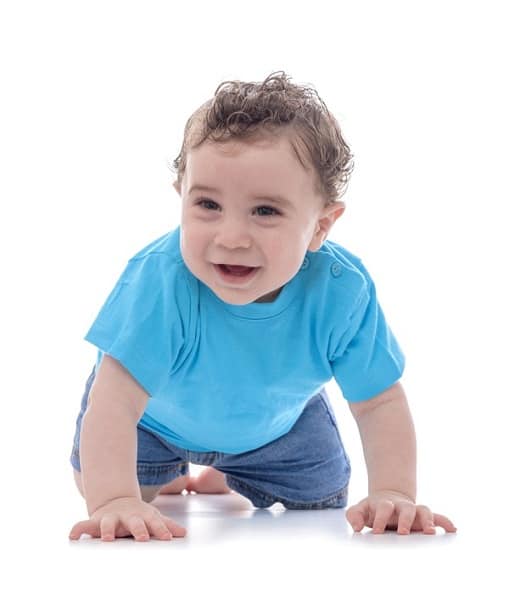What is Infant Mental Health?

According to ZERO TO THREE Infant Mental Task Force , “Infant Mental Health (IMH) is the developing capacity of the child from birth to 3 to experience, regulate (manage), and express emotions; form close and secure interpersonal relationships; and explore and master the environment and learn -all in the context of family, community, and cultural expectations for young children.
- Developing capacity is a reminder of the extraordinarily rapid pace of growth and change in the first 3 years of life
- Infants and toddlers depend heavily on adults to help them experience, regulate, and express emotions.
- Through close, secure interpersonal relationships with parents and other caregivers, infants and toddlers learn what people expect of them and what they can expect of other people.
- The drive to explore and master one’s environment is inborn in humans. Infants’ and toddlers’ active participation in their own learning and development is an important aspect of their mental health.
- The contexts of family and community are where infants and toddlers learn to share and communicate their feelings and experiences with significant caregivers and other children. A developing sense of themselves as competent, effective, and valued individuals is an important aspect of IMH.
- Culture influences every aspect of human development, including how IMH is understood, adults’ goals and expectations for young children’s development, and the child rearing practices used by parents and caregivers.”
Why is IMH important?
During infancy, a child’s brain is rapidly developing and the foundation for how the child will relate to others, manage and express emotions, and learn is being laid. Because of this, if warning signs of poor infant mental health arise, interventions during this stage can have a more powerful and lasting effect than interventions during a later stage of development. Therefore, it is important that we monitor an infant’s mental health status, know what influences it, and understand the warning signs that the child might be struggling in some way.
What factors affect IMH?
Attachment
An infant’s relationship with their caregiver has the biggest impact on their mental health. These caregivers include the child’s birth parents, adoptive parents, foster parents, grandparents, and childcare and education providers as well as other significant adults who share the primary care and nurturance of infants and toddlers. Infants are born with a predisposition to seek out others and look to their caregivers to be emotionally responsive to them. When this is not present (due to a variety of factors such as parental stress, depression, lack of knowledge of how to respond, illness, homelessness, hospitalization, a history of abuse, attachment challenges, and psychological vulnerability), the child becomes disturbed.
Because of this, a secure, responsive, predictable and stable relationship with a caregiver can lead to overall infant well-being and the ability to effectively manage stress; and it also lays the groundwork for all other development – physical, motor, language and cognition. This is in stark contrast to an unhealthy relationship (due lack of caregiver responsiveness, harsh responses or an inconsistent approach), which can lead to putting the child at higher risk of later school failure, social difficulties, medical issues, substance use, and mental health issues (e.g., depression).
Infant Characteristics
Infants are born with their own personalities and temperaments (i.e., individual differences in physiological responsiveness including how an infant responds emotionally to people and objects). According to two theorists, Thomas and Chess, who extensively studied child temperament in the late 1970s, the 3 main temperaments are as follows:
- Easy children usually have positive moods and approaches to new situations. They adapt quite well to change. Easy children are somewhat predictable in their sleeping, eating, and elimination patterns.
- Difficult children tend to have irregular sleeping, eating, and elimination patterns. They often experience negative moods and withdraw from things which are new. Difficult children are slow or non-adaptive to change.
- Slow-to-warm-up children may react to new situations in a negative but mild manner. They are low in activity levels and tend to withdraw in new situations. These children are more likely to warm up when approached in a way which respects their temperament traits.
When it comes to temperament, the factor that plays the biggest role in IMH is how well the child’s temperament matches their environment – otherwise known as their “goodness of fit.” Poorness of fit occurs when an infant’s temperament is not respected and accommodated. Therefore, a caregiver’s natural temperament and way of parenting may fit quite well for one child while it may not fit for another. When this occurs, it is important to change the caregiver’s response so that “goodness of fit” results and the child can reach their full potential.
What are the signs that my infant might be experiencing mental health difficulties?
Since an infant or very young child cannot tell us when they are having a problem, it is important that we keep an eye out for warning signs such as:
- Not wanting to be held
- Not being able to be comforted when upset, or being upset for longer than seems right
- Fussiness (e.g., screaming, whining, crying)
- Eating and sleeping difficulties
- Not making eye contact with the parent or caregiver, or avoiding eye contact with others
- Not seeming to interact with others
- Not making noises very often, like cooing or babbling sounds
- Not using language as expected for their age
- Losing skills they could once do
- Tantrums
- Aggression (e.g., hitting, biting, pinching)
- Anger, frustration, head-banging
- Separation anxiety or withdrawal from parent
- Developmental concerns (e.g., autistic behaviors, language problems)
Who should I seek help from if my infant is showing any of these warning signs?
If any of these warning signs are present, consultation from a medical or mental health provider who specializes in infant mental health should be sought out. Some specific programs are as follows:
Parent-Child Interaction Therapy with Toddlers – An evidence-based early intervention program for 12-24 month old children and their caregivers. It focuses on increasing emotional regulation and building self-esteem in toddlers through teaching parents supportive and nurturing parenting practices.
Healthy Families New York – A home visiting program that matches parents with knowledgeable and caring workers who provide information and support during pregnancy and early childhood. Services include helping families access community resources and services, educating families on parenting and child development, connecting families with medical providers, and assessing children for developmental delays.
Nurse-Family Partnership – Home visitors work with low-income young women who are pregnant with their first child, helping these vulnerable young clients achieve healthier pregnancies and births, stronger child development, and a path toward economic self-sufficiency.
The Incredible Years – A series of interlocking, evidence-based programs for parents, children, and teachers, supported by over 30 years of research. The goal is to prevent and treat young children’s behavior problems and promote their social, emotional, and academic competence. The programs are used worldwide in schools and mental health centers, and have been shown to work across cultures and socioeconomic groups.
In addition, the below resources may provide further information and guidance:
https://www.zerotothree.org/espanol/infant-and-early-childhood-mental-health
http://www.nysaimh.org/about-babies/
Resources used for this blog include the following:
https://www.healthyfamiliesnewyork.org/
https://www.nursefamilypartnership.org/locations/new-york/
https://keltymentalhealth.ca/infant-mental-health
http://www.incredibleyears.com/
https://www.zerotothree.org/espanol/infant-and-early-childhood-mental-health
https://www.ncbi.nlm.nih.gov/pmc/articles/PMC4933050/#b11-pch-21-5-239
http://www.nysaimh.org/about-babies/
http://csefel.vanderbilt.edu/documents/rs_infant_mental_health.pdf
https://www.mentalhelp.net/infancy/emotional-social-development-temperament/





